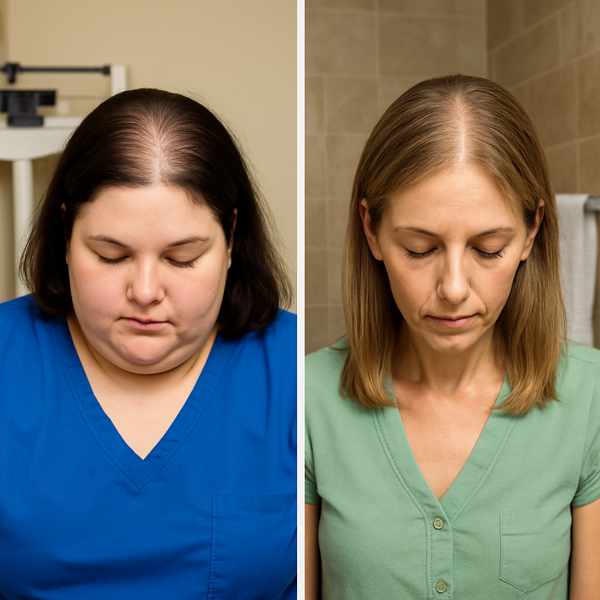
Many people notice their hair thinning during or after a weight loss journey, which can be frustrating.
Understanding why this happens and how to protect your hair can help you reach your goals without compromising your confidence.
Why Hair Loss Happens During Weight Loss
Hair loss during weight loss is usually a result of physical stress or nutritional deficiencies.
Common causes include:
- Lack of protein, iron, or vitamins
- Extreme calorie restriction
- Hormonal imbalances
- Rapid weight loss
Temporary Hair Loss Explained
Most hair loss related to weight loss is called telogen effluvium.
Key facts:
- Usually occurs 2–3 months after weight loss begins
- No bald patches, just thinning
- It often resolves on its own
What Your Hair Needs to Thrive
If you're trying to lose weight, be sure not to miss these nutrients:
- Protein
- Iron
- Vital for cell renewal and keratin production
- Zinc
- Linked to healthy follicles and hormonal balance
Skipping meals or using crash diets can easily lead to deficiencies that trigger hair loss.
Staying Healthy Without Sacrificing Hair
It’s possible to do both by following a balanced and mindful approach.
Tips include:
- Lose weight gradually
- Focus on whole, balanced meals
- Especially during calorie restriction
- Manage stress and sleep
- Hair needs water, too
What to Do If You’re Already Losing Hair
If you how to stop hair loss due to weight loss notice excessive shedding:
- It’s likely temporary
- Get bloodwork done
- Focus on protein and iron intake
- Avoid tight hairstyles and harsh products
- Hair regrowth takes a few months
When to See a Professional
A doctor or dermatologist can help identify underlying issues like:
- Thyroid dysfunction
- Autoimmune conditions
- Need professional correction
The Truth About Weight Loss and Hair Loss
By understanding what’s happening inside your body, you can take steps to protect your health — and your hair.
Prioritize nourishment, patience, and consistency, and your body will thank you — from head to toe.